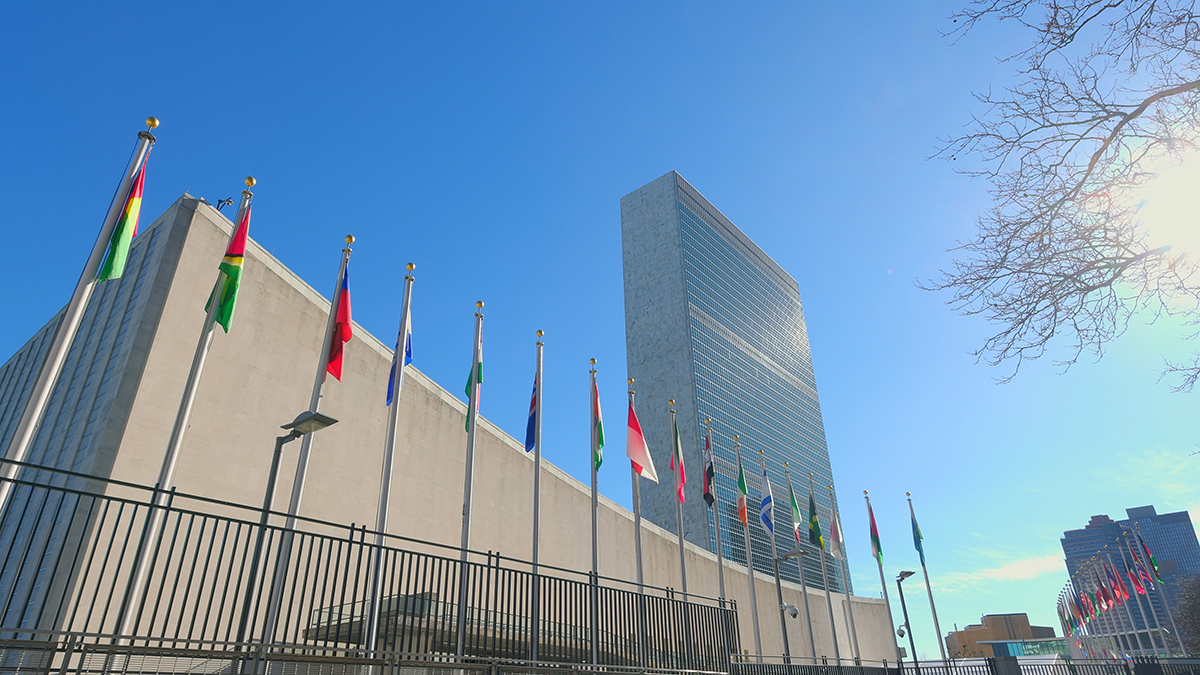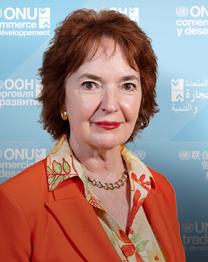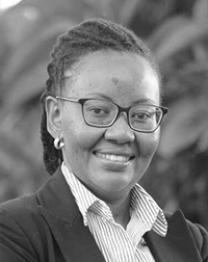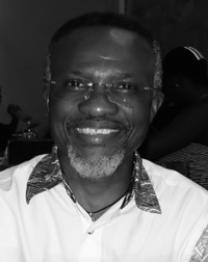
© Shutterstock - United Nations Headquarter in New York
The global financing system is at a crossroads. The recently adopted Pact for the Future calls for sweeping reforms to the international financial architecture, aiming to close the gaping Sustainable Development Goals (SDGs) financing deficit. Yet, critical questions remain unanswered: How can public investment catalyze economic transformation? And how can trade and investment policies unlock domestic resource mobilization in developing economies?
Opening remarks: Prudence Kaoma, Acting Permanent Secretary (Zambia)
Moderator: Juan Jose Martinez Badillo (UNCTAD)
Speakers:
- Penelope Hawkins (UNCTAD)
- Betty Wainaina (NYU)
- Tetteh Hormeku (Thirld World Network Africa & Civil Society FfD Mechanism)
The side event takes a step to address these issues. It explores how public investment, when strategically deployed, can fuel structural economic change, creating a virtuous cycle of export-led growth, profitability, and reinvestment.
Equally, the discussion will spotlight the often-overlooked role of global trade and investment regimes in fostering an environment where developing countries can thrive and mobilize resources more effectively.
The event will map out a comprehensive framework to scale up sustainable development finance.
Key points of discussion include:
- Reshaping Global Rules: How multilateral trade and investment frameworks can better support structural transformation in the Global South.
- Reforming Debt Metrics: Why Debt Sustainability Analysis must evolve to reflect long-term development
- Tackling Inequities in Borrowing Costs: Addressing the stark financing disparities that penalize developing nations.
- Creating a Global Safety Net: The case for robust, inclusive mechanisms to shield vulnerable economies from shocks.
This session aims not just to diagnose the problem but to craft actionable solutions that align global finance with the SDGs, offering a path toward a more equitable and sustainable future.
A UN ground pass is required to attend the event.
Additional information on the Second Preparatory Committee Session for FfD4 can be found here.

Penelope Hawkins is the Officer-in-Charge of the Debt and Development Finance Branch within UN Trade and Development (UNCTAD), a branch that includes the Debt and Development Finance Research Unit as well as the Debt Management and Financial Analysis System (DMFAS) Programme, which currently facilitates the debt recording and management in over 60 developing countries.
In her current position, Ms. Hawkins researches and engages with member country representatives and the broader civil and academic society on sustainable sovereign debt, financing for development, and the nexus between debt and climate finance. She represents UNCTAD at the G20 International Financial Architecture Working Group meetings and is the G20 Finance Deputy to UNCTAD Secretary-General Rebeca Grynspan. She also represents UNCTAD in several fora, including most recently at the Fourth International Finance for Development Conference (FFD4), G24 meetings in Washington DC and BRICS meetings.
Previously, as the founder and Managing Director of Feasibility (Pty) Ltd, Ms. Hawkins undertook leading research projects in the financial sector in Southern Africa, commissioned by regulators, policy makers and the private sector.
Her expertise in the financial sector stems from her published work. She holds a PhD in economics from the University of Stirling, Scotland, and an M.A. in economics (cum laude) from the University of South Africa.

Betty N. Wainaina is the Program Director of the Multilateral Reform Program at New York University’s Center on International Cooperation (CIC).
She is a social development specialist with diverse experience in the development sector, working in several countries, including Kenya, Uganda, Tanzania, South Sudan, Somalia, Ethiopia, Sierra Leone, East Timor, Malawi, and Ghana. She has designed programs aimed at promoting institutional strengthening and deepening governance arrangements, including working with executive branches of government, legislatures, local authorities, and civil society.
Her previous roles have been with the World Bank as an economist in the Kenya, Somalia, and Comoros country programmes, respectively. She later joined the Global Centre for Conflict Security and Development, which sought to deepen and advance the community of practice within the World Bank on issues affecting fragile and conflict-affected states. In this role, she supported the engagement of the World Bank at both global and country levels with the g7+ Secretariat and the International Dialogue on Peacebuilding and State Building in operationalizing the New Deal for engagement in fragile states. She has also worked for the Heinrich Böll Foundation and has served as a consultant for various United Nations (UN) agencies and other international development organizations.
She possesses a master’s degree in environmental economics from the University of Kent in the UK and a first degree in Environmental Planning and Management from Kenyatta University in Kenya.
Tetteh Hormeku-Ajei is Head of Programmes at Third World Network Africa.
Mr Hormeku-Ajei has over 20 years of experience of engagement with international economic and trade policy, law, negotiations and advocacy; multilateral, regional and bilateral.



